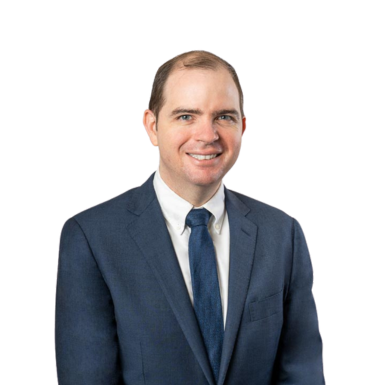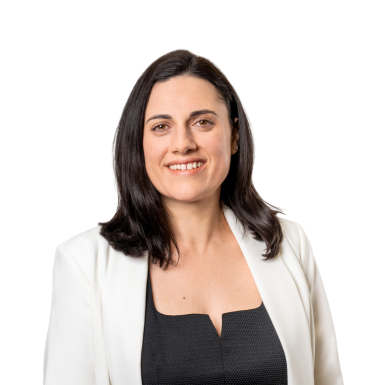The Shared Debt Recovery Scheme will take effect on 1 July 2019. The recent enactment of the Health Legislation Amendment (Improved Medicare Compliance and Other Measures) Bill 2008, will mean that from 1 July 2019 the Commonwealth Government will be able to pursue both individual medical practitioners and employing and contracting medical organisations for repayment of incorrect Medicare billing.
The Department of Health has advised that the Shared Debt Recovery Scheme is intended to introduce a fairer approach to address organisational billing practices.
On 1 July 2018, the Health Legislation Amendment (Improved Medicare Compliance and Other Measures) Bill 2008 came into effect. One of the key changes from this Bill is the introduction of the Shared Debt Recovery Scheme (SDRS) through amendments to the Health Insurance Act 1973 (Cth), which commence on 1 July 2019. The SDRS will allow the Commonwealth Government to hold an employing or contracting organisation responsible for a portion of Medicare debts incurred as a result of lodging incorrect Medicare claims. The legislative amendments are intended to improve Medicare compliance.
This is a significant development, as to date, individual medical practitioners have been held responsible for 100% of Medicare debts incurred on the basis that they are responsible for services rendered under their individual provider numbers, except in clear cases where another person has engaged in billing fraud. This approach has resulted in significant prejudice to medical practitioners, who typically only receive a smaller percentage of Medicare benefits billed under their provider number due to an employing or contracting organisation retaining a substantial percentage of benefits (for example, 35% or 40%).
The necessary implication of these reforms is that both individual practitioners and medical practices ought to ensure MBS item numbers are correctly claimed. This would extend to, for example, the correct item number being billed for the service provided to a patient, and that the medical provider will need to have met all of the Medicare Benefits Schedule (MBS) item requirements in order to claim the benefit from Medicare.
In early December 2018, the Commonwealth Department of Health published a Consultation Paper ‘Medicare Compliance – Shared Debt Recovery Scheme’ to seek input from organisations, health practitioners and the public for the drafting of a legislative instrument (regulations) for the operation of the SDRS prior to it coming into effect on 1 July 2019. Participation is invited via the Department of Health’s Consultation Hub at https://consultations.health.gov.au/compliance-systems/sdrs-consultation and, according to the consultation paper, will close on Thursday, 31 January 2018. The consultation issues specified by the Department of Health are:
- Classes of persons (or organisations) which may be considered a secondary debtor for the purposes of a shared debt and classes of persons (or organisations) who would be excluded from being considered a secondary debtor;
- Matters which should be considered when making a shared debt determination; and
- The default proportion of the debt that is recoverable from the secondary debtor.
Medical practitioners should familiarise themselves with MBS requirements for billing of item numbers as the Department of Health has confirmed that primary responsibility for correct claiming will continue to rest with the practitioner, who is the only person who can determine if a service has met all MBS item requirements. Medical practitioners should also ensure that there is an appropriate process in place for reviewing all Medicare claims lodged by staff members on their behalf, so that any errors are identified at an early stage and promptly rectified.
Medical practitioners who are the subject of a Medicare audit should consider the contractual arrangements in place in their medical practice with respect to the splitting of billings. Such contractual arrangements may ultimately affect the percentage of benefits they are individually responsible to repay to Medicare, pursuant to the SDRS. The Department of Health has confirmed that the SDRS will be integrated into the Medicare audit process, and practitioners will be asked if they would like to be considered for a shared debt determination. The Department of Health has explained that “This means that the practitioner will be asked to not only produce documents in relation to the services claimed, but also provide information about relevant employment, contractual or financial arrangements”. If the SDRS is triggered, it is intended that a legislative instrument will provide for a ‘default’ percentage of the debt to be recovered from a primary debtor and secondary debtor, which may vary based upon existing individual contractual agreements.
Meridian Lawyers assists medical practitioners in responding to Medicare audits, as well as the separate process involving investigations by the Professional Services Review (on referral by Medicare), which examine whether a practitioner may have engaged in ‘inappropriate practice’ in connection with rendering or initiating services in that the conduct would be unacceptable to the general body of their peers as defined in the Health Insurance Act 1973.
This article was written by Principal Daniel Davison and Senior Associate Sarah Twinn. Please contact us if you have any questions or would like more information.




 Meet our Team
Meet our Team View our Insights
View our Insights